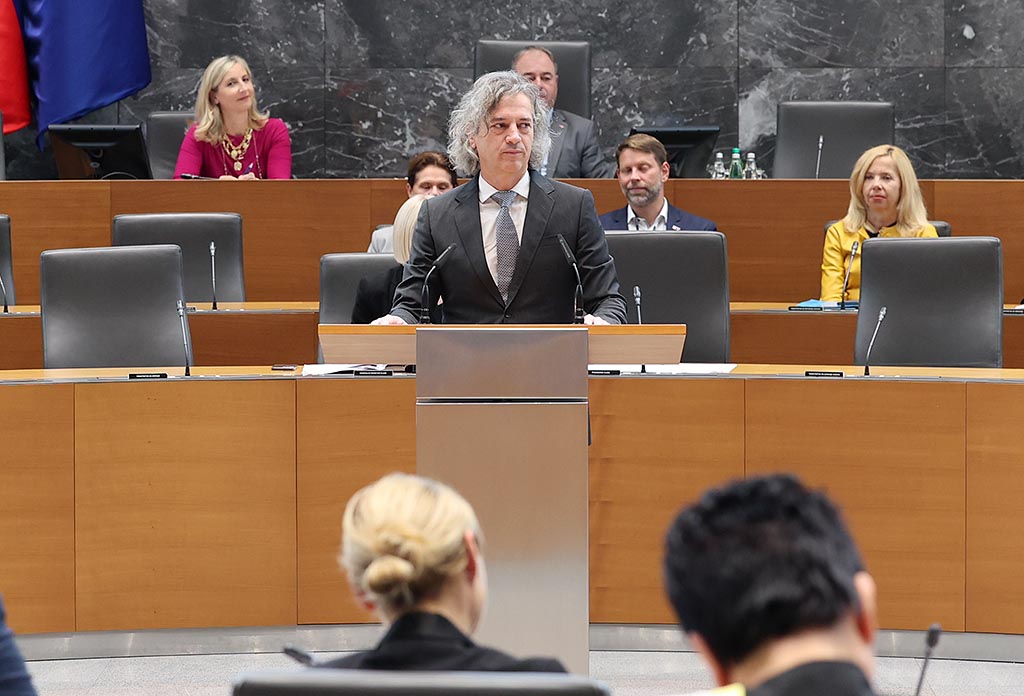By: Sara Kovač / Nova24TV.si
On Monday, at a correspondence meeting, the government approved a legislative package of tax changes that largely repeal the tax reform prepared by the government of Janez Janša in the spring. The Ministry of Finance is predicting major changes to the tax legislation for next year, which are expected to come into effect in 2024. The government published the original proposals for legislative changes in early August, and after discussions with social partners, they were slightly adjusted. Thus, they confirmed the higher limit for ICs with normalised expenses, which will now also have to be confirmed by the members of parliament.
A few days ago, we reported that the government of Robert Golob “re-debated” the tax changes, which to a large extent annul the tax reform prepared by the government of Janez Janša – Finance news also wrote about this in more detail. We announced that if the changes to the law are approved by parliament, they will come into effect next year. Yesterday, the government approved a package of five legislative proposals and sent them to the National Assembly (NA) for consideration. These are proposals for laws on income tax, excise duties, tax verification of invoices, tax procedure, and financial administration. Siol reported that according to the proposal of the Council of Ministers, the NA will deal with the first three in an emergency procedure.
While the government reached agreement with the social partners on some of the proposed tax changes, this did not happen in the case of the proposed change to the income tax legislation. The employers have therefore again called on the government to withdraw the interventions in the Income Tax Act from the procedure and leave them for next year – at that time the ministry is announcing a more extensive tax reform. Otherwise, at the correspondence session, the government decided on the amendments to the proposed amending state budget of this year but did not support the proposed amendments. We have already summarised the main tax changes in previous articles – only one change is more visible, namely the confirmation of a higher limit for ICs with normalised expenses, who will pay the same as before.
Confirmed higher limit for ICs with normalised expenses
Among other things, the government approved the bill on income tax, which increases the limit of annual income from the previously proposed 25 thousand euros to 35 thousand euros, up to which there would be no change for ICs with normalised expenses if they have fully insured at least one person for at least nine months continuously. An entrepreneur with revenues of 35,000 euros will thus have the same obligation as in the current system, which means that 80 percent of normalised expenses will be recognised. An entrepreneur who generates 35,000 euros in revenue will have 1,400 euros in income tax advances. According to the proposal, an entrepreneur who will generate 60,000 euros in revenue per year will have a 2,000-euro higher tax liability – for an additional 25,000 euros in revenue, 40 percent of normalised expenses will be recognised. Government materials from the Ministry of Finance also show that entrepreneurs with an income of 100,000 euros will have a higher tax liability of 5,200 euros. The changes from the previous proposal are maintained in the case of ICs with an afternoon activity – which we have already written about. To briefly summarise again, the general relief will be raised to 5,000 euros, the taxation limit for normal residents has been raised, the rental of property is again taxed at 25 percent, and the issuing of invoices is again mandatory. The introduction of a relief for young people up to the age of 29 is also planned, namely the tax base from employment income will be reduced by 1,000 euros.
Siol reported that among other things, the proposed amendment to the Tax Procedure Act brings changes regarding the disclosure of certain data to the beneficiary, which he needs to fulfil his obligations, and the submission of documents via the eDavki portal, which should be possible without a qualified digital certificate. According to the proposal, the amendment to the law on financial administration will eliminate the changes adopted by the previous government, among other things, they relate to the position of directors of financial offices, collegial determination in the most demanding cases of the tax procedure, the measure of assigning the case to another inspector and the financial investigation. In addition, it should now be possible to monitor the movement of goods using technical devices in cases of suspicion of the most serious violations in the field of excise duties. With the amendment to the law on excise duties, the government intends to change the system, according to which farmers can get a delayed refund of 70 percent of the excise duty on the diesel fuel they need for work. According to the proposal, they will have a 76 percent lower excise duty, already when filling up the fuel.

